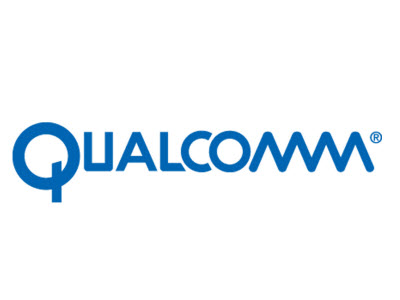Qualcomm: Apple Told Manufacturers To Break Their Contracts
It must be a good week to file complaints with the U.S. court system. One man sued his date for texting during "Guardians of the Galaxy Volume 2," ZeniMax alleged that Samsung knowingly used stolen intellectual property in its Gear VR products, and now Qualcomm has complained that Apple told its manufacturers not to pay royalties for tech licensed from Qualcomm. (The first doesn't really compare to the others, but we figure all this court talk could use a bit of levity.) This complaint is the latest in a global legal battle Apple and Qualcomm have been fighting since January.
Qualcomm said in a press release that four iOS device manufacturers--Foxconn, Pegatron Corporation, Wistron Corporation, and Compal Electronics--are "refusing to pay for use of Qualcomm’s licensed technologies." None of the manufacturers are disputing their contracts, Qualcomm said, which were "entered into before Apple sold its first iPhone." Instead, they "say they must follow Apple’s instructions not to pay." Now the company is asking a U.S. District Court in California to force the manufacturers to honor their contracts and pay declaratory relief and damages.
The complaint doesn't come as much of a surprise. Qualcomm said in April that Apple had instructed manufacturers to stop paying royalties; the only difference is that Qualcomm is now going after the manufacturers themselves instead of merely targeting Apple. We said when Qualcomm first claimed that Apple was interfering with its business that the legal fight, which revolves around the cost of using Qualcomm-patented technologies in Apple products, was being taken from the court room to the balance sheets. This complaint is Qualcomm's attempt to bring the fight back into the courts.
In an email to Tom's Hardware, Qualcomm called attention to the following paragraph within its filing:
91. Apple orchestrated the actions of each Defendant. In addition to withholding payments from Defendants for Qualcomm royalties, Apple instructed Defendants to withhold corresponding royalty payments from Qualcomm. Moreover, Apple has agreed to indemnify Defendants for any damages they may incur as a result of breaching their agreements with Qualcomm, further demonstrating their strong-arm tactics.
This is not to say that Qualcomm is the only one accusing its opponent of using strong-arm tactics. Apple CEO Tim Cook said after the company filed the lawsuits in California and Beijing that he viewed the legal battle as a "last resort" because previous negotiations had failed. Separately, companies like Intel and Samsung accused Qualcomm of abusing its patents to monopolize the component market. The Federal Trade Commission made similar accusations, and an arbitrator recently ordered Qualcomm to refund $815 million in royalty payments to BlackBerry. Apple isn't the only one flexing its muscles.
Get Tom's Hardware's best news and in-depth reviews, straight to your inbox.

Nathaniel Mott is a freelance news and features writer for Tom's Hardware US, covering breaking news, security, and the silliest aspects of the tech industry.
-
hellwig Apple's strategy seems to be "Bankrupt Qualcomm before they win a decision". Qualcomm's practices are just as dirty as Intel's were in the 90's/00's against AMD (funny how they're now complaining), but Apple's hands are far from clean.Reply -
JonDol Reply19703899 said:QC earned ~$6 billion dollars last year.
Good luck trying to bankrupt them.
The goal is not to bankrupt them but to make them review their licensing fees. That would allow other companies to issue products competitively priced against those chinese low cost and relatively high end specs sold by Xiaomi, Huawei etc. which I strongly suspect of being hardware backdoored as the majority of chinese network products... -
genz Reply19705421 said:19703899 said:QC earned ~$6 billion dollars last year.
Good luck trying to bankrupt them.
The goal is not to bankrupt them but to make them review their licensing fees. That would allow other companies to issue products competitively priced against those chinese low cost and relatively high end specs sold by Xiaomi, Huawei etc. which I strongly suspect of being hardware backdoored as the majority of chinese network products...
Every single device out there has a hardware backdoor to stop bad flashes destroying good hardware at the factory, even if it must be accessed by JTAG. SIM technology is secure enough, but only when your baseband ROM cannot be flashed easily and the keys are not known or accessible to the user.
Chinese, Japanese or American designed, they are all made in the same factories in China and those 'backdoors' are in the hands of Chinese employees. If you have a xenophobia of Chinese hackers, then don't buy a smartphone period, but you, I and the hacker universe are not getting into a mfg backdoor without an electron microscope to map out the microcode etched into the litho, a LOT of time, and the baseband keys to understand what exactly the QC chip does at the lowest levels, provided the platform and OS let you get that low level... In fact, you certainly have far less chance of someone hacking your Xiaomi in the US than someone hacking your Apple in China OR the US because of the fact there aren't exactly a ton of other Xiaomi's it will meet with exactly the same OS image, internals and thus vulnerabilities. Mac OS has been using security by obscurity successfully for 35 years now, and even the most replicative virii cant spread past a classroom.
Also, FYI, all those Xiaomi and Huawei cheap phones are made with MediaTek parts, which have nothing to do at all with Qualcomm and are a separate Chinese based ARM fabless semi dev.
